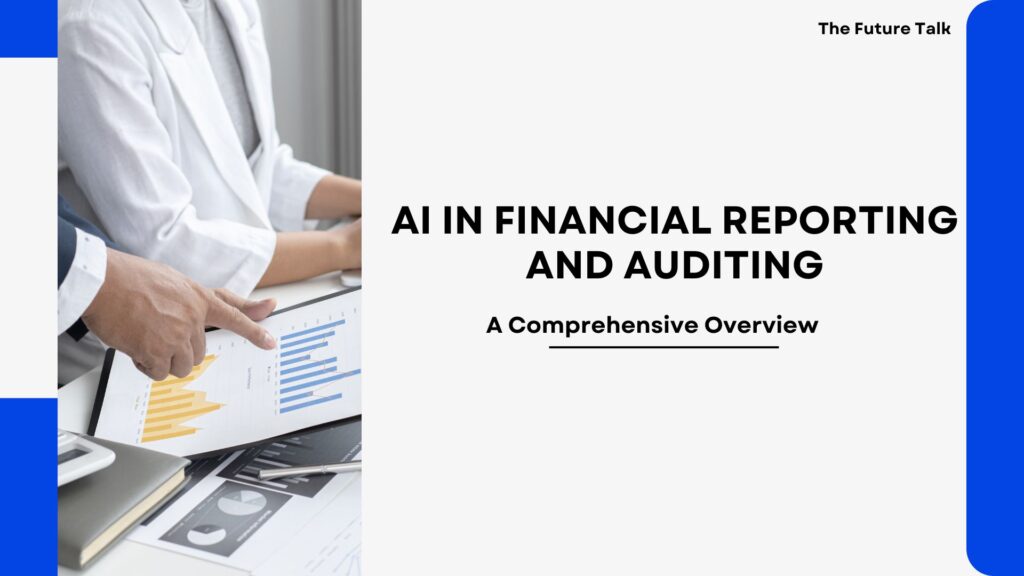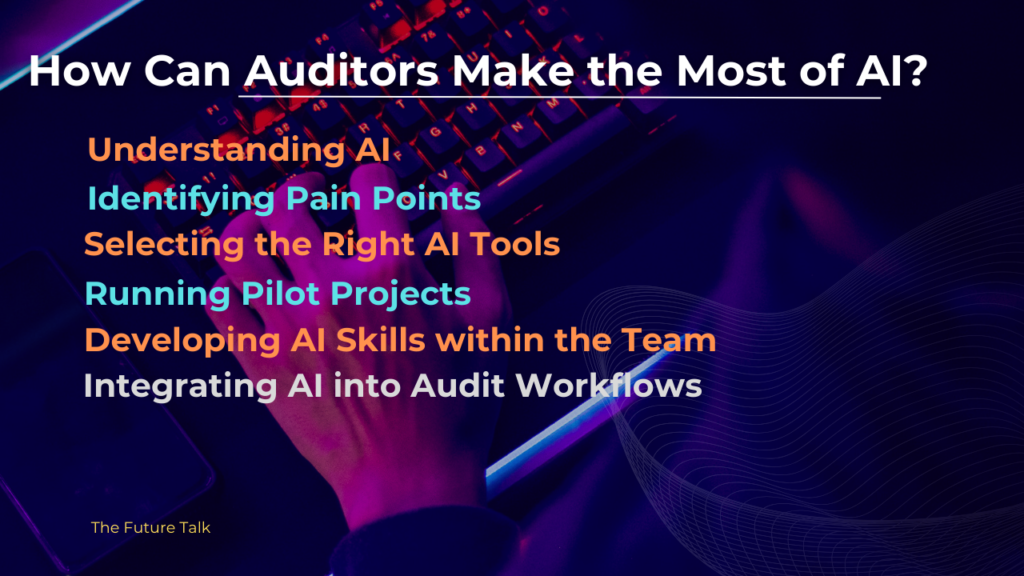
AI technologies in finance are reshaping traditional financial workflows by identifying anomalies, mitigating risks, and improving overall efficiency. AI technologies, such as machine learning algorithms, natural language processing (NLP), and data analytics, have accelerated transformation in the industry.
AI in financial reporting and auditing emerges as a practical tool that can automate monotonous tasks while providing deep insights through data analysis. Its impact in this domain cannot be overlooked. This impact is backed by the KPMG survey where around 72% of companies surveyed are piloting or using AI in financial reporting.
The KPMG report ‘AI in financial reporting and audit: Navigating the new era’ revealed that AI currently makes up 10% of the IT budget, but that percentage will grow for the next year. It further noted that almost every company surveyed has taken strategic action regarding AI.
How AI Helps in Auditing and Financial Reporting?
Traditionally, the fields of auditing and financial reporting have relied heavily on manual processes, human judgment, and extensive documentation. The traditional manual tasks take a lot of time and may be prone to error. The integration of AI technologies has brought a significant revolution in how financial data is examined, reported, and audited.
Improving Accuracy and Minimizing Errors
One of the most significant benefits of AI in auditing and financial reporting is its capacity to improve accuracy while minimizing human error. AI systems can process vast volumes of data with accuracy. They detect discrepancies, anomalies, and trends that human auditors may miss.
Streamlining Data Analysis
The integration of AI-powered systems can analyze large datasets very quickly and provide auditors and financial professionals with real-time insights. Through the analysis of past data, machine learning algorithms can identify patterns, envisage future results, and detect possible problems. This AI’s capability allows auditors to focus on more strategic tasks like risk assessment.
Advancing Fraud Detection and Risk Management
An essential component of financial reporting and auditing is fraud detection. AI systems will allow auditors to spot patterns and unusual activity that could point to fraud. These systems employ pattern recognition, anomaly detection, and predictive modeling to identify anomalies in financial transactions.
Alan Anderson, CPA, founder and president of ACCOUNTability Plus LLC believes “AI can give you 100% of the population, which makes anomaly detection extremely reliable when it’s based on proper parameters set by the auditors.”
Enhancing Adherence to Regulatory Requirements
Auditing and financial reporting are subject to stringent regulatory oversight. By continuously checking transactions and financial operations against regulatory criteria, AI can help firms remain compliant. It can provide reports and alerts for noncompliance, ensuring that enterprises follow legal and regulatory guidelines.
Enhancing Strategic Planning and Decision-Making
By deploying AI systems, auditors and financial experts gain practical insights that help them with strategic planning and decision-making. Organizations may find areas for development, obtain a better knowledge of their financial health, and make well-informed business decisions using AI-driven data. They can even predict future financial performance and utilize resources more wisely.

How To Leverage AI in Auditing?
- Auditors should become acquainted with AI principles, instruments, and uses that pertain to their line of work. This entails being familiar with predictive analytics, natural language processing (NLP), and machine learning.
- Auditors must examine the auditing procedures to determine where AI can be most helpful, such as in data analysis, fraud detection, or repetitive work analysis.
- Determining whether AI platforms and tools are intended expressly for auditing is crucial. Auditors and financial professionals must think of programs like PwC’s Halo, KPMG Clara, and MindBridge A Auditor.
- Before implementing AI solutions, starting with small-scale pilot projects is crucial to test the AI tools in real audit scenarios. This helps auditors understand the tool’s capabilities and limitations.
- Developing AI skills within the team is critical for using AI tools. Auditing firms should conduct training programs for auditors to develop their skills. This includes hands-on training, workshops, and certifications.
- Last but not least is to deploy AI systems in audit workflows to automate routine tasks. This may include data entry, transaction matching, and reconciliations. AI systems can also used for continuous auditing.
AI in Auditing – Best Practices
Several accounting firms, Big 4 companies, and financial services providers are harnessing the power of AI in auditing and financial reporting. These companies use advanced AI technologies to get improved efficiency, enhanced accuracy, and data-driven insights into their auditing processes. Here are some real-world examples:
- KPMG uses a GenAI solution KPMG Clara AI that generates human-like responses to auditors.
- Deloitte has developed Deloitte Omnia which brings a focused approach to a business and industry to deliver a high‑quality digital audit.
- EY has integrated AI into its audit processes with tools like EY Helix, an audit analytics platform that allows analytics to be embedded into every significant aspect of the audit.
- PwC leverages GenAI technology for audit services allowing employees to synthesize data, generate documentation, and more.
Also Read: How AI and Advanced Analytics are Transforming Tax and Finance?
The Final Thought
AI will continue to evolve with technological advancements and is poised to transform financial reporting and auditing by automating routine tasks, improving data analysis, and boosting accuracy and compliance. By embracing AI technologies, auditors and finance professionals can gain insights into financial reporting and auditing, making them stay competitive in the financial landscape.
Stay tuned to The Future Talk for more such interesting topics. Comment your thoughts and join the conversation.